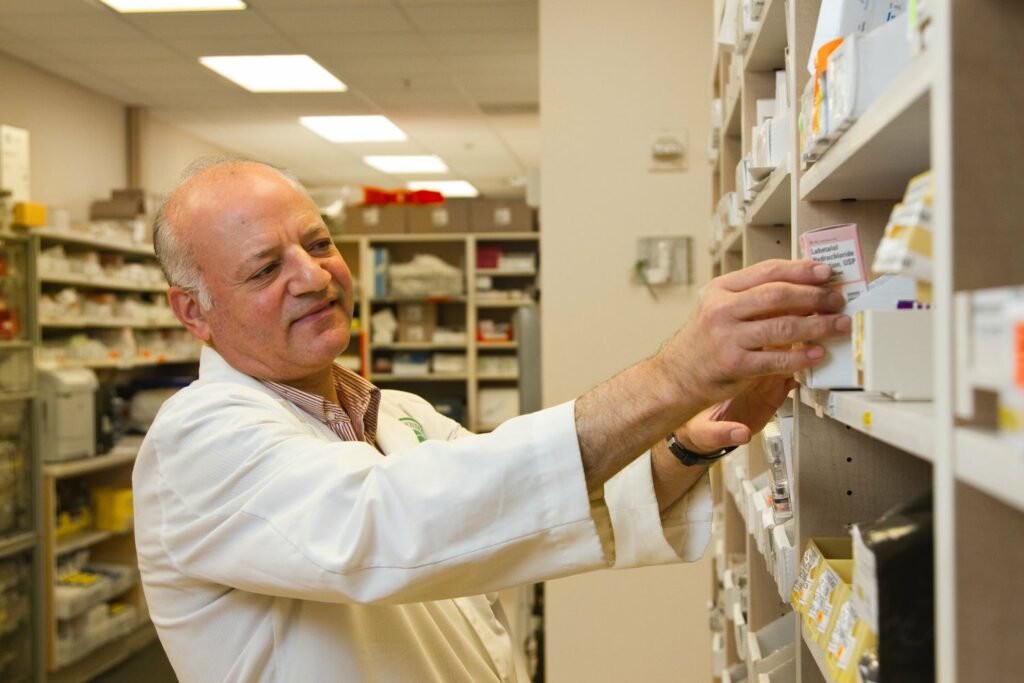In the ever-evolving realm of healthcare, the roles of pharmacists and physicians stand as crucial pillars in ensuring patient well-being. While physicians are typically seen as the frontline diagnosticians and prescribers, pharmacists play an equally vital role in medication management and patient care.
The question that often arises is, who possesses a deeper understanding of medications? Is it the pharmacists, who specialize in the intricacies of pharmaceuticals, or the physicians, who diagnose and treat a myriad of medical conditions? In this blog post, we’ll delve into this intriguing debate, exploring the knowledge, expertise, and patient care experiences offered by both professions.
Table of Contents
Who Offers Better Patient Care Experiences?
When it comes to patient care experiences, both pharmacists and physicians have unique contributions to make. They are integral members of the healthcare team, working together to provide comprehensive care to patients. Let’s explore how each profession contributes to delivering the best possible patient care experiences.
Pharmacists: The Medication Experts
Pharmacists are often referred to as the medication experts, and for good reason. Their extensive knowledge of medications, drug interactions, dosage forms, and side effects makes them invaluable in ensuring patient safety and optimizing treatment outcomes. Pharmacists are trained to review prescriptions, counsel patients on proper medication use, and address any concerns or questions patients may have. This hands-on approach not only enhances patient understanding but also helps prevent medication errors.
One of the key aspects of patient care that pharmacists excel in is medication reconciliation. They play a critical role in ensuring that patients are taking the right medications at the right doses and are aware of potential interactions with other drugs. This meticulous attention to detail helps reduce adverse drug events and enhances patient safety.
Additionally, pharmacists often serve as a bridge between patients and their healthcare providers. They can identify medication-related problems, such as allergies or contraindications, and communicate these issues to the prescribing physician. This collaborative approach fosters better patient care by preventing potential medication mishaps.
Physicians: The Diagnostic and Treatment Experts
Physicians, on the other hand, are at the forefront of diagnosing medical conditions and developing treatment plans. They have a deep understanding of disease processes, and their expertise extends beyond medications to include surgical interventions, lifestyle modifications, and preventive care. Physicians play a pivotal role in diagnosing complex medical conditions and coordinating patient care.
In terms of patient care experiences, physicians are responsible for conducting thorough evaluations, ordering diagnostic tests, and making evidence-based treatment decisions. They establish a strong doctor-patient relationship, where trust and confidence in the physician’s expertise are paramount. Patients rely on physicians to diagnose their conditions accurately and provide guidance on the best course of action.
The Synergy of Pharmacists and Physicians
In reality, the patient care experience is greatly enhanced when both pharmacists and physicians work together as part of an integrated healthcare team. Their complementary expertise ensures that patients receive well-rounded care that encompasses accurate diagnosis, appropriate treatment, and safe medication management.
Pharmacists can offer valuable insights to physicians by identifying potential drug interactions, optimizing medication regimens, and helping patients adhere to their prescribed treatments. Physicians, in turn, rely on pharmacists to ensure that patients receive the right medications and understand how to take them correctly. This collaboration promotes a holistic approach to patient care that benefits individuals and the healthcare system as a whole.
Reducing Medication Errors
One of the critical aspects of patient care is the prevention of medication errors. These errors can have severe consequences, ranging from adverse reactions to life-threatening situations. Both pharmacists and physicians play pivotal roles in minimizing medication errors, but their approaches differ.
Pharmacists: The Guardians of Medication Safety
Pharmacists are vigilant when it comes to medication safety. Their expertise in pharmacology and pharmacokinetics equips them to identify potential medication errors before they reach the patient. Here’s how pharmacists contribute to reducing medication errors:
- Medication Review: Pharmacists thoroughly review prescriptions to ensure accuracy in dosage, frequency, and potential drug interactions. They act as the last line of defense before the patient receives the medication.
- Patient Counseling: Pharmacists take the time to counsel patients on how to take their medications properly. This includes explaining potential side effects, the importance of adherence, and any necessary precautions.
- Monitoring: Pharmacists monitor patients’ medication regimens over time, looking for changes in therapy or potential issues. They can intervene if they detect any deviations from the treatment plan.
- Medication Reconciliation: During transitions of care, such as hospital discharge, pharmacists play a critical role in reconciling medications to ensure a smooth transition and minimize the risk of errors.
- Adverse Event Reporting: Pharmacists are trained to recognize and report adverse drug events, contributing to the ongoing safety monitoring of medications.
Physicians: Prescribing Safely
Physicians, as prescribers, also play a vital role in preventing medication errors. Here’s how they contribute to medication safety:
- Accurate Diagnosis: Physicians ensure that the medication prescribed is appropriate for the patient’s medical condition. This starts with an accurate diagnosis and consideration of the patient’s medical history.
- Individualized Treatment Plans: Physicians tailor treatment plans to each patient’s unique needs, taking into account factors like allergies, comorbidities, and potential drug interactions.
- Communication: Physicians communicate with patients to ensure they understand their treatment plans and are aware of any potential side effects or adverse reactions to watch for.
- Collaboration: Physicians work closely with pharmacists and other healthcare professionals to ensure a coordinated approach to patient care.
- Ongoing Monitoring: Physicians monitor their patients’ progress and adjust treatment plans as needed, taking into account any reported side effects or changes in the patient’s condition.
It’s important to note that medication errors can occur at various points in the healthcare system, from prescribing to dispensing and administration. Collaborative efforts between pharmacists and physicians are key to reducing these errors and ensuring patient safety.
Why Pharmacists Who Are Looking for High-Quality CE Should Choose a free CE Membership
Continuing education is essential for pharmacists and pharmacy technicians to stay updated on the latest developments in their field and maintain their licensure. A freeCE membership offers numerous advantages for professionals seeking high-quality CE opportunities. Here’s why pharmacists should consider choosing a freeCE membership:
- Diverse Course Catalog: freeCE offers a wide range of courses covering various aspects of pharmacy practice. Whether you’re interested in medication management, patient counseling, or the latest advancements in pharmaceuticals, you’ll find relevant and engaging courses to enhance your knowledge.
- Convenience: With a freeCE membership, you can access CE courses online, allowing you to learn at your own pace and on your schedule. This flexibility is especially valuable for busy professionals.
- Cost-Effective: As the name suggests, freeCE offers a free trial membership, allowing you to get a feel for what our programs are like.
Sign up for a membership today!
Empowering Pharmacists: Bridging the Gap in Medication Expertise
In the debate over who possesses a broader knowledge of medications, pharmacists and physicians both bring unique strengths to the table. Pharmacists are the medication experts, specializing in ensuring safe and effective medication management, while physicians excel in diagnosing medical conditions and developing comprehensive treatment plans. However, it’s the synergy between these two professions that truly enhances patient care experiences and reduces medication errors.
In the end, it’s not a matter of whether pharmacists or physicians have broader knowledge, but rather how their collaboration benefits patients and ensures the safe and effective use of medications in healthcare.







